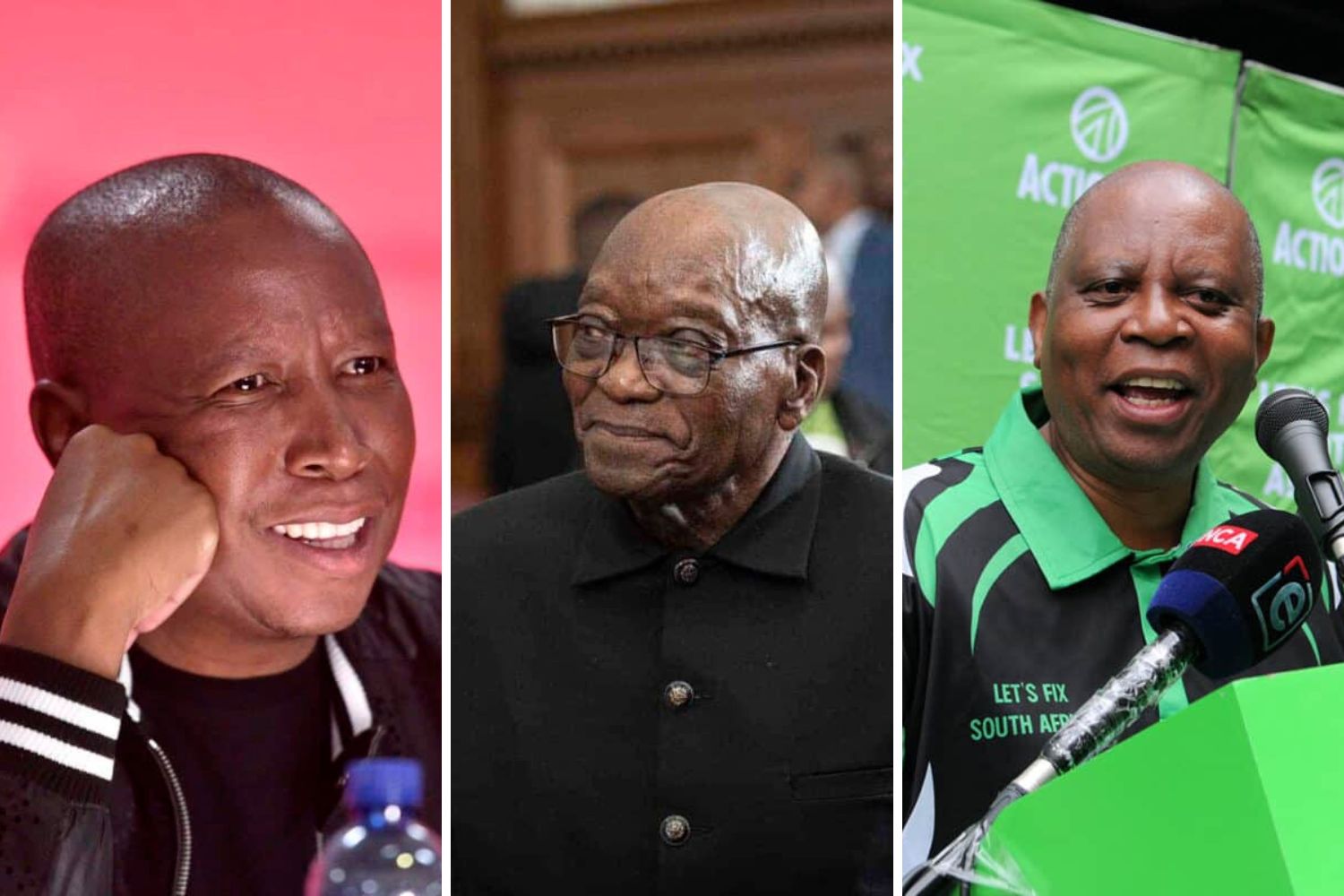Shifts in coalitions and alliances, including the EFF-MK fallout and ActionSA’s changing stance, signal a new era for South African politics.
It has been an interesting year in politics with many twists and surprises, such as the EFF losing some key members to uMkhonto weSizwe party (MK) and Action SA switching positions from being a DA partner to a coalition with the ANC and EFF.
ActionSA leader Herman Mashaba denied claims that Build One South Africa (Bosa), Rise Mzansi, the Good party and Action SA would combine forces.
“I can confirm that we never had any official political parties mentioned in a media article last week. We only had informal discussions with Bosa and Rise after the elections, which are of no consequence to comment about,” Mashaba said.
Good to have small parties combine forces
Political analyst Piet Croucamp said it would be a good thing, considering the EFF and MK relationship was still sour. Still, those two groups as a caucus in the National Assembly would represent a form of militarisation of black politics.
“However, Bosa, Rise Mzansi, Good party and Action SA is a form of intellectual black consciousness, a bit of a different black understanding of politics as opposed to a militarised one. I think it’s high time we suspend those assumptions we might have of black solidarity against white solidarity.
“It just goes to show that interest varies, understanding of politics vary and hopefully it sets the tone of a different way of political competition in South Africa, with reasonable minds that challenge the views of those who seek to undermine the constitution,” he said.
ALSO READ: Tshwane in 2024: From Brink’s removal to Moya’s rise
Political analyst Roland Henwood said this may be an important development in the necessary realignment of South African politics, specifically also in the context of the political party.
“It is clear that the proliferation of small political parties, often around a single personality, does not support good governance and also does not positively support parliamentary oversight and control over government and the executive, despite strengthening representation,” he said.
Henwood said the negative outcomes of the fragmentation of political parties into very small and ineffective opposition groupings was one of the clear negatives from the political trajectory of post-colonial Africa, and also from newly democratising countries.
Negative political trajectory
“However, this is a longterm process, as foreseen by Songezo Zibi of Rise Mzansi, and will not be easy to effect. Key challenges are the basis of cooperation and the long-term objective – is it integration for a longer-term objective or only cooperation against another party/parties? If the latter, it will not bear positive long-term outcomes.”
“Small parties in SA are developed around strong individuals/ personalities that often create problems when such personalities have to relinquish their status and privileges and accept other decisions.”
“This will also require agreement on policy and party strategy,” he said.
NOW READ: SA politics: A new era of excitement and uncertainty awaits in 2025
Henwood said hopefully this will contribute to the democratisation of internal party processes such as internal elections, adding that it may also contribute to the further consolidation of democratic politics in South Africa.
